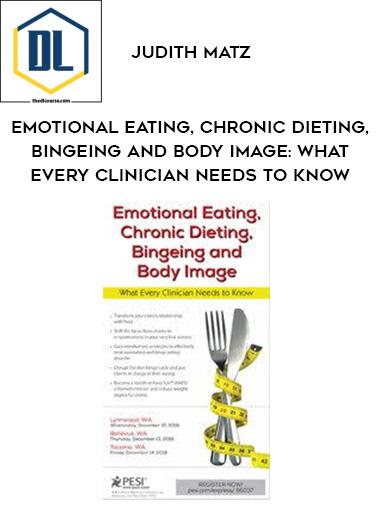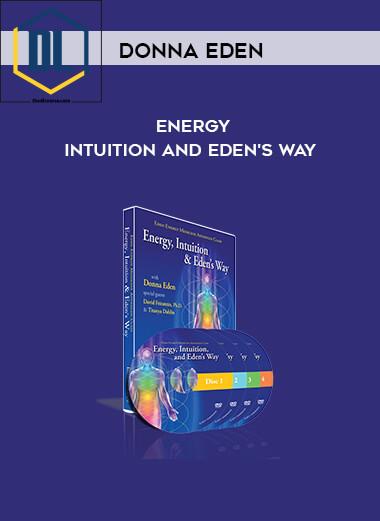Judith Matz – Emotional Eating, Chronic Dieting, Bingeing and Body Image
$199.00 Original price was: $199.00.$71.00Current price is: $71.00.
» Instant Delivery
Judith Matz – Emotional Eating, Chronic Dieting, Bingeing and Body Image
Description
I’m too fat.” “I’m on a diet.” “Today is a cheat day.” Once I lose weight, I’ll be happier.” “My eating is out of control.”
This kind of language runs rampant in our society and has no doubt made its way to your office. Clients who struggle with weight and food issues get caught in a vortex of shame, preoccupation and hopelessness. Trapped between the rigidity of dieting and the chaos of overeating, every day can be an emotional battle that may exacerbate or even result in low self-worth, eating disorders, anxiety or depression.
Treatment of these issues is more than a matter of weight loss or self-control. In fact, many times these very interventions do more harm than good!
Watch Judith Matz as she shows you how to help your clients identify the shame that is woven into the diet-binge cycle, challenge unhelpful thoughts and feelings, and repair dysfunctional relationships with food – no willpower necessary!
Packed with practical tips and backed by research, this recording will teach you how to:
- Identify issues related to food, weight and body image in your very first session
- Utilize CBT, mindfulness and attuned eating strategies to transform shame into empowerment
- Discover personal bias and attitudes that may be counterproductive to the therapeutic process
- Help clients develop a healthy framework that ends out of control eating and is not subject to fad diets
- Learn why clients get stuck in the diet/binge cycle and how to finally break it
Objectives
- Articulate the differences in clinical presentation between Binge Eating Disorder, disordered eating and emotional overeating.
- Examine the relationship between societal “diet culture” and its influence on disordered eating patterns that present in clinical treatment.
- Utilize CBT-informed interventions to address distorted thinking patterns in order to help clients normalize eating and incorporate positive, sustainable behaviors.
- Provide psychoeducation for clients regarding the relationship between overeating and emotional regulation skills.
- Teach clients the three essential steps of attuned eating in order to replace disordered eating patterns, including binge eating.
- Identify personal bias toward body size and implement Health at Every Size (HAES)-informed strategies in the therapeutic relationship.
Outline
Assessment
- 3 crucial questions to ask at intake
- DSM-5®: Binge Eating Disorder (BED)
- The difference between BED, disordered eating and emotional overeating
- Sub-clinical disordered eating patterns
The Root of the Problem
- The backdrop of diet culture
- Why dieting doesn’t work and weight is not the problem
- Food as a form of affect regulation
- Shame about food and body size
- Co-morbid mental health conditions
Moving Clients from Shame to Empowerment: Treatment Strategies that Work
- Cognitive-Behavioral Therapy (CBT)
- Challenge the problem of good/bad thinking
- Restructure thoughts to be more curious and less judgmental
- End negative body talk and challenge internalized weight stigma
- Mindfulness Practices That Promote Emotional Regulation
- Guided visualizations that bring emotional calm
- Diaphragmatic breathing exercise
- Taking in The Good (Hanson’s Buddha Brain practice)
- Self-Compassion Skills That Are Essential to Recovery
- How compassion reduces overeating and bingeing
- Allowing for and tolerating emotional experiences
- Neff’s 3 steps of self-compassion
- Attuned Eating: The Antidote to Diet Failure
- Implementing the 3 steps of attuned eating
- Tools to help clients overcome common obstacles
- Psychological vs. physiological hunger
- Working with different eating styles (vegetarian, health concerns, etc.)
Readmore about : Judith Matz
Related products
Health & Lifestyle
Total sold: 1
Health & Lifestyle
Total sold: 1
Instant Delivery
Total sold: 2
Health & Lifestyle
Total sold: 2
Health & Lifestyle
Joe Dispenza – The Magic Walk: A Guided Children’s Walking Meditation
Total sold: 1
Health & Lifestyle
Health & Lifestyle
Total sold: 1












